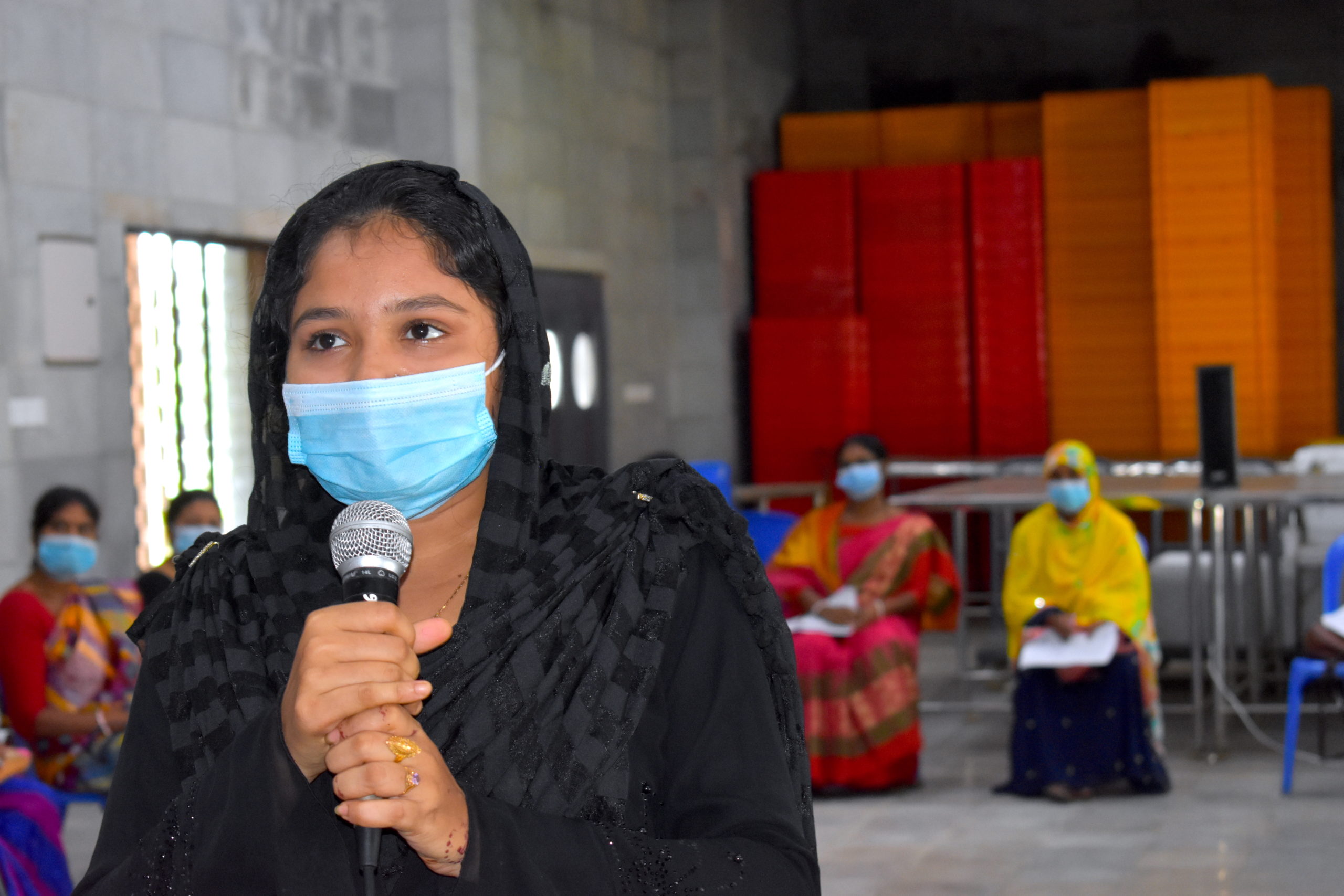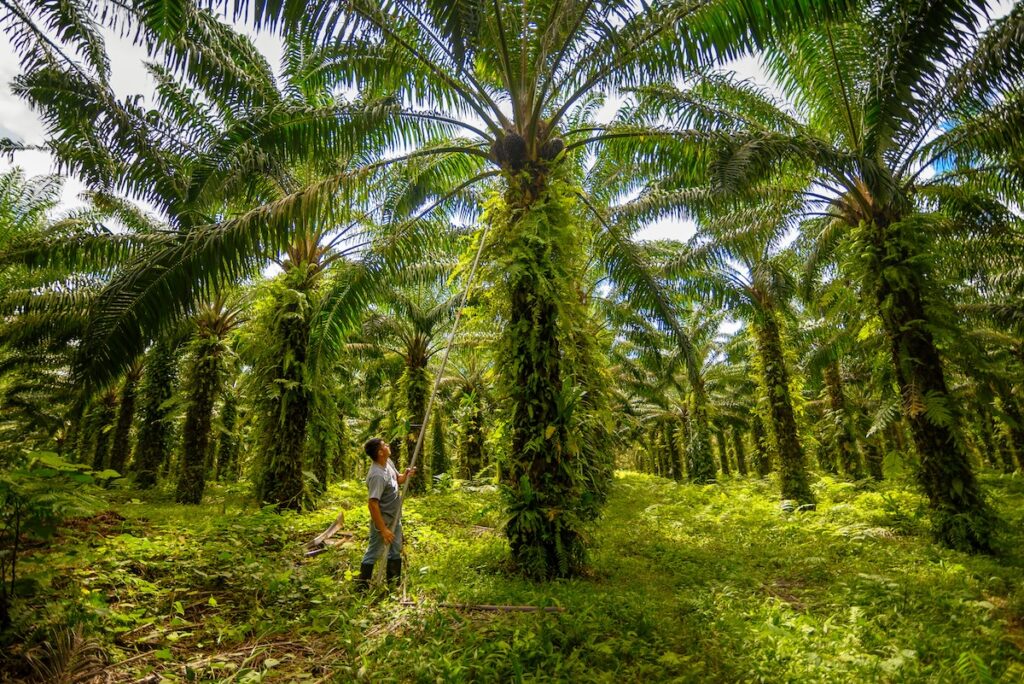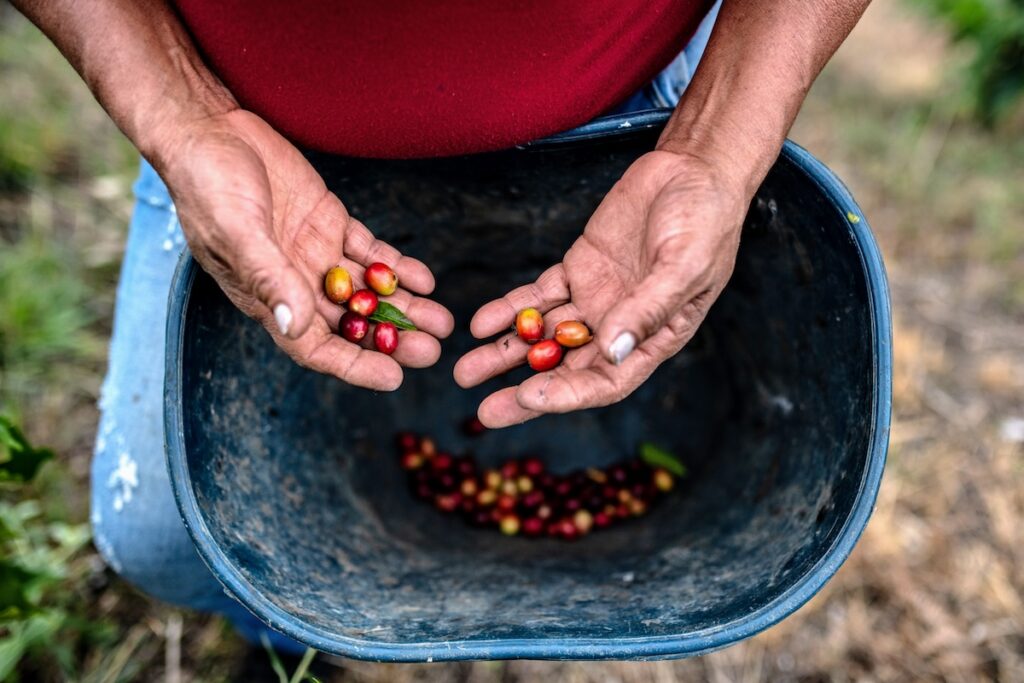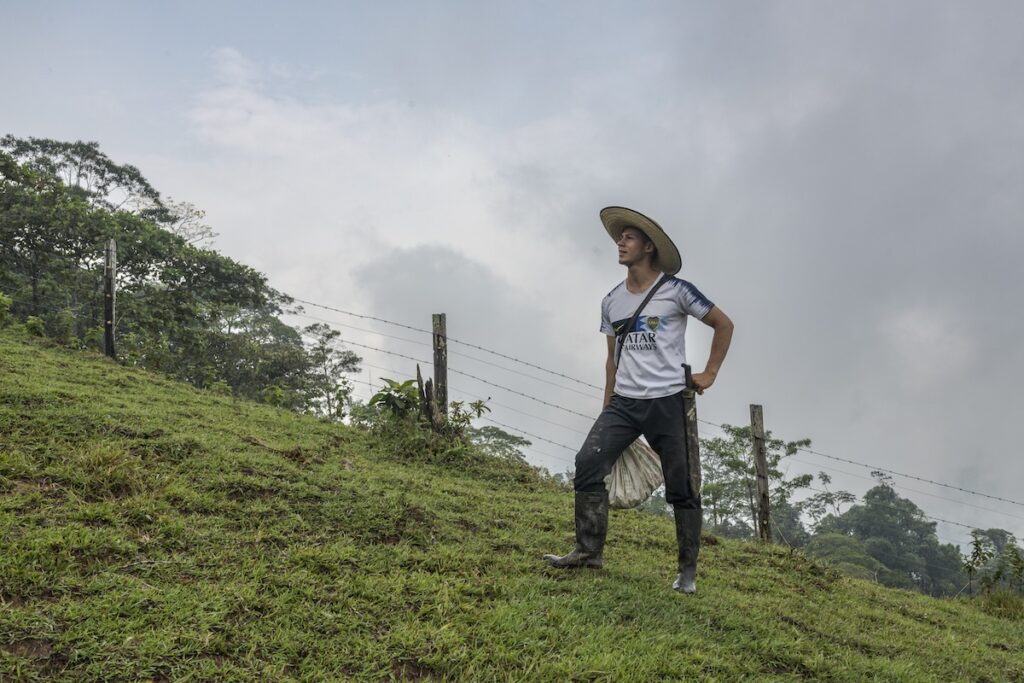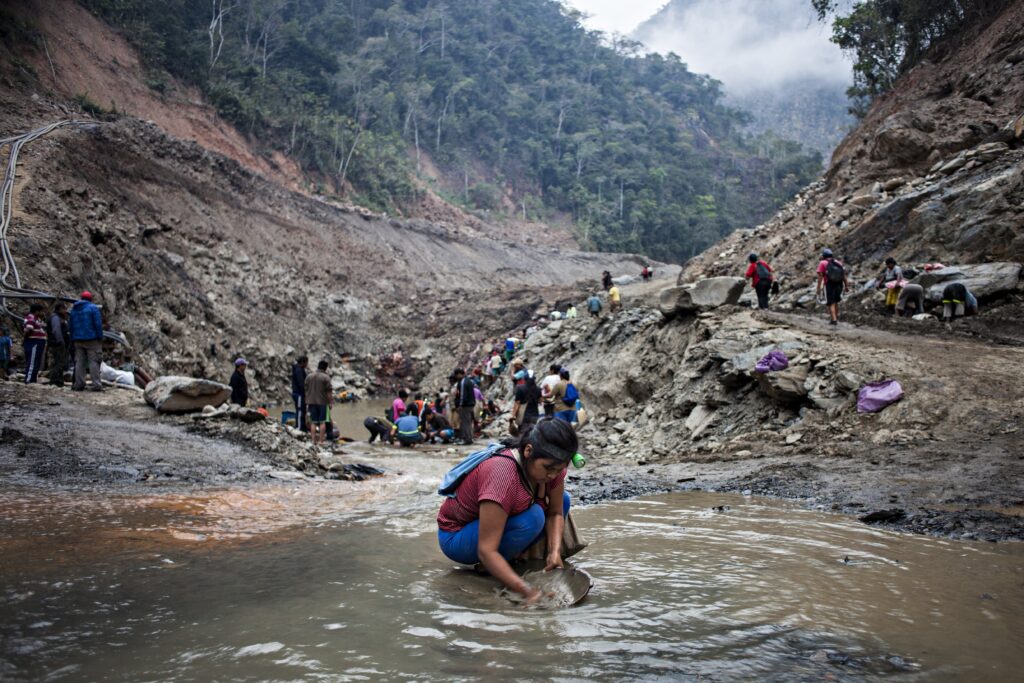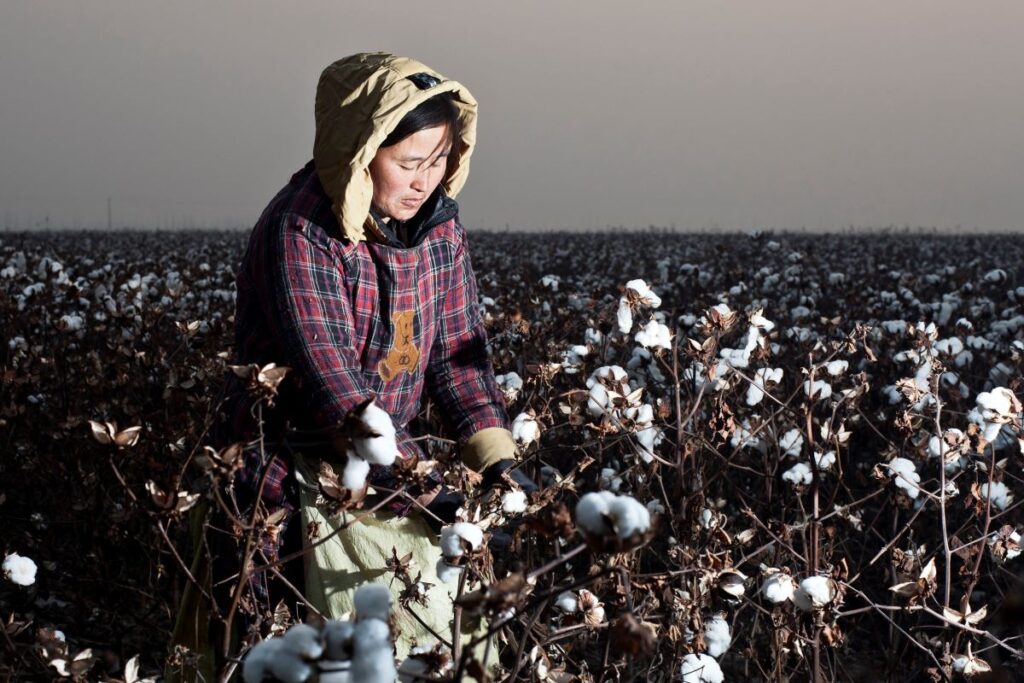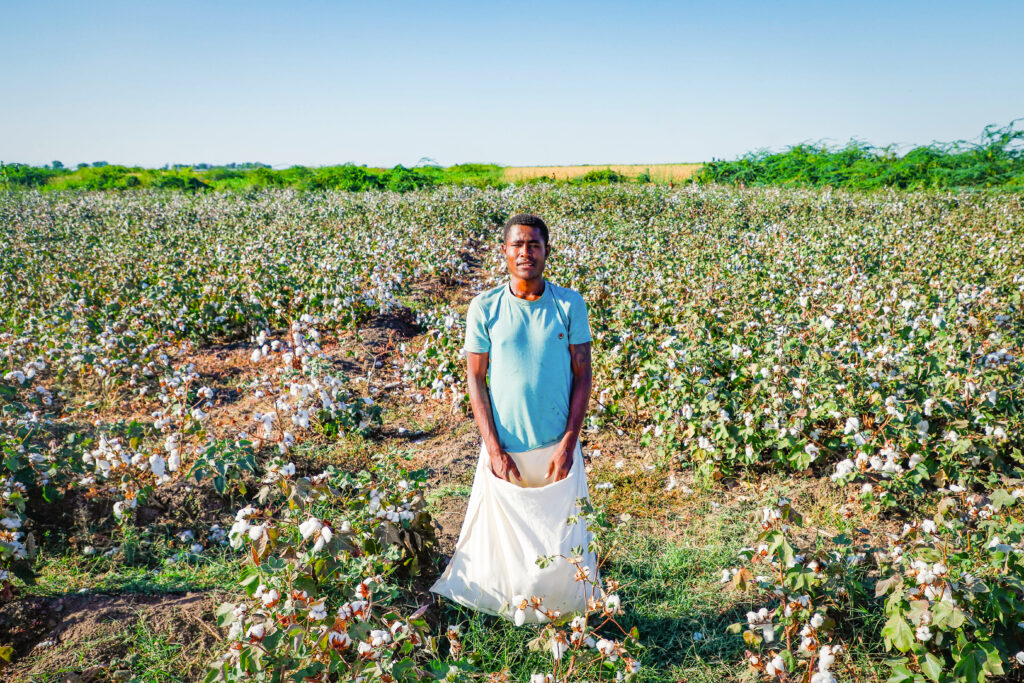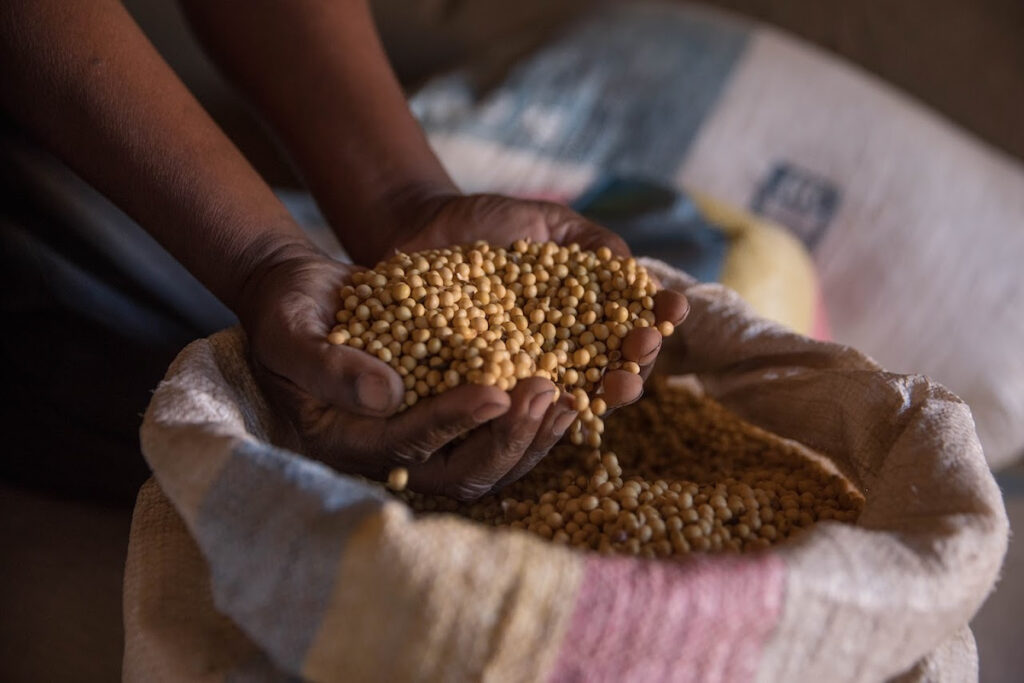The project was launched in early 2020, as part of the USAID-funded WomenConnect Challenge. It aims to build the capacities of 12,000 women involved in dairy farming to learn and adopt improved dairy practices through technology such as IVR. A subset of 4,500 women are further engaged in digital financial transactions, to get paid for the milk they deliver in Milk Collection Centers established by Solidaridad.
Despite the unexpected hurdles of the Covid-19 pandemic, the project progressed in 2020 with the completion of a human-centered design research to better understand the specific context and needs of the women dairy farmers, and Covid-safe training sessions covering a range of topics from livestock management to digital wallet management to financial literacy.
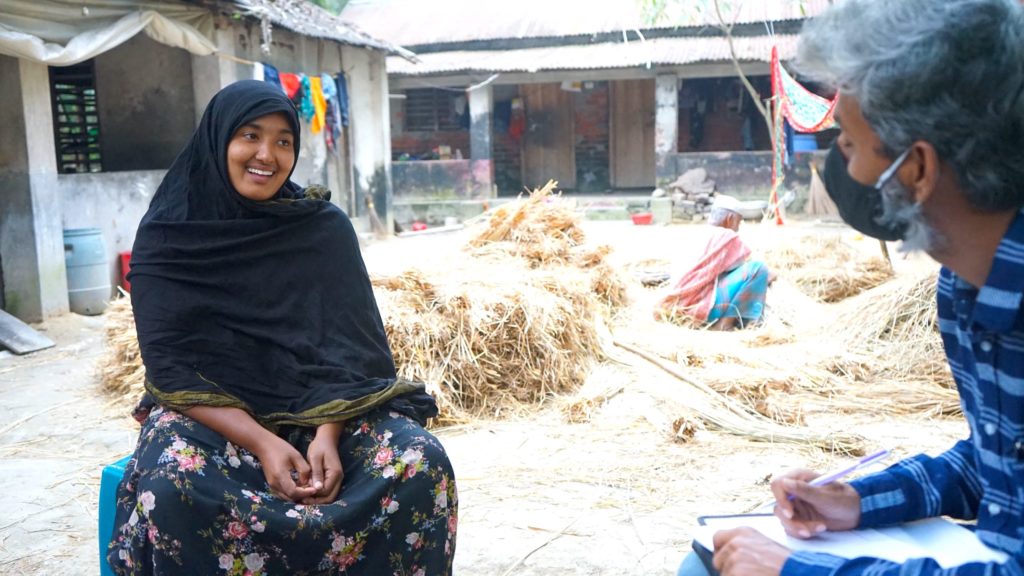
Getting connected
In the start of 2021, Solidaridad equipped 15 milk collection centers with the i2i app developed by Solidaridad, allowing them to register farmers, input sales data, send sales-related text messages to women farmers and make digital payments to bKash accounts (a mobile wallet partner) and mobile banking accounts of the farmers. To date, more than 3,000 women farmers have created bKash accounts, and over x women receive daily text messages about the milk they sell and the money they earn, based on the quality and quantity of milk they sell to the milk collection centers. This will provide the women with valuable insights about their own performance over time, and encourage them to improve their dairy farming practices.
These milk collection centres play a crucial role in providing reliable demand for milk for these farmers, even throughout the Covid-19 pandemic. However, the demanding lives of these women—often responsible for a plethora of domestic and childcare tasks—can make it difficult for them to visit the centres in person. The i2i app thus ensures that even if she can’t make it there herself, the payment will be made directly to her digital wallet, along with important data about the milk sold.
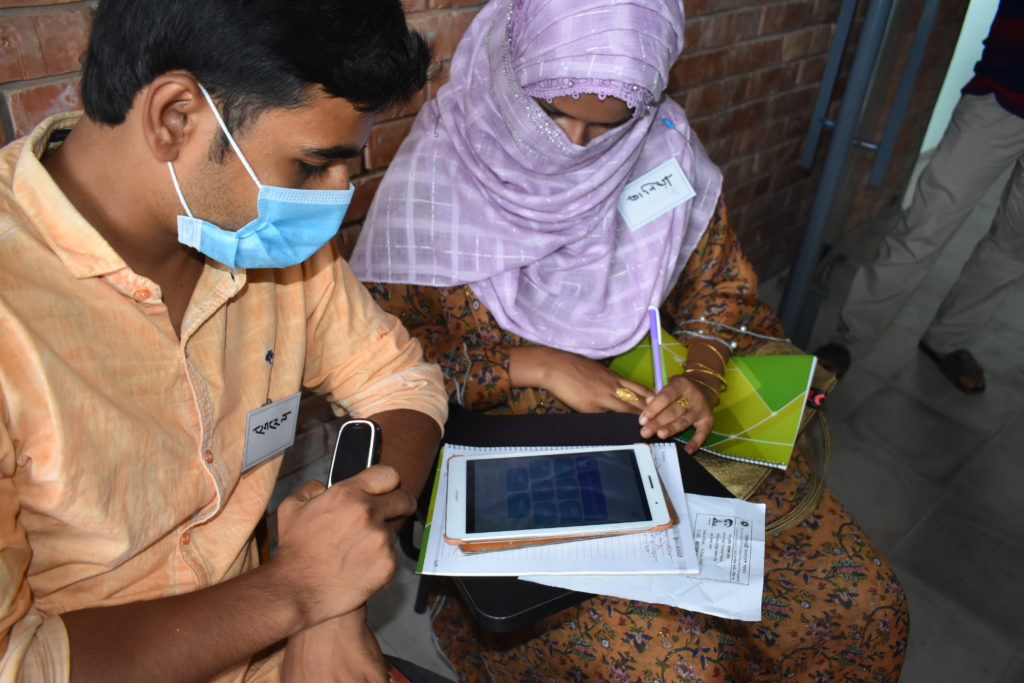
Technical assistance, right at home
The digital payments system is now complemented by the launch of a dynamic Interactive Voice Response system. Since April this year, the IVR system has since started broadcasting voice and text messages to 12,000 women farmers. Weekly themes — such as feed management, milking, artificial insemination, disease management, etc. — guide the IVR training over time, with content tailored based on the results of the human-centered design study. Being a dynamic IVR system, the women farmers are also being trained to call the system and navigate through the different menu options available to them to access information on the topics important to them,
Although the Covid-19 situation continues to be an urgent concern across Bangladesh and much of the world, the programme’s emphasis on digital solutions along with the strong network of milk collection centres lays a strong foundation for the innovation to forge ahead in the coming months.

